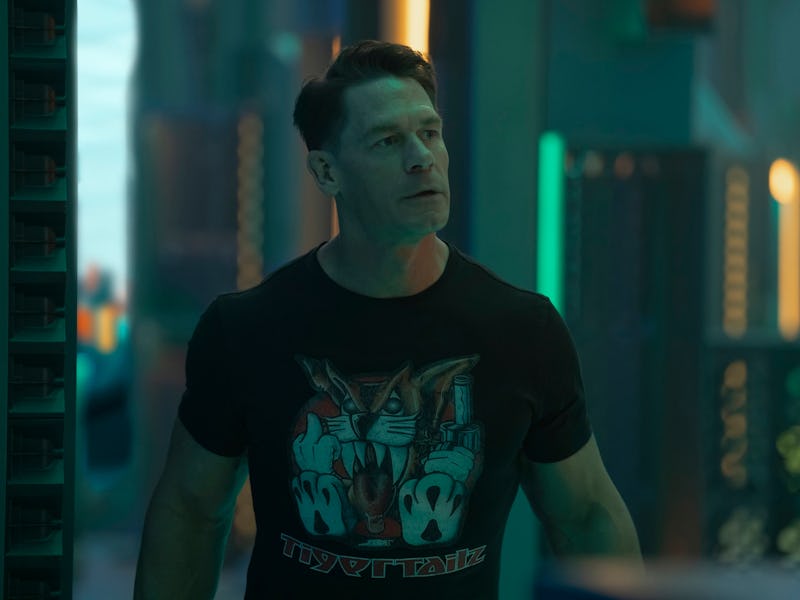Peacemaker Season 2’s Shocking Murder Has Deeper References Beyond DC
This isn’t just about the multiverse.

At the end of the first episode of Peacemaker Season 2, the unthinkable happens. After delving into a very personal multiverse story, the newly rebooted second season of the DCU series takes a very surprising turn. This single twist sets up everything that comes next in the series, and clearly, has big implications for the rest of the DC Universe.
But what writer and head of DC Studios James Gunn reveals is that the inspiration for Peacemaker Season 2’s deepest, darkest themes doesn’t come directly from comic books. Instead, Peacemaker Season 2’s roots run in a totally different direction.
Spoilers ahead.
Peacemaker Season 2, Episode 1, Ending Explained
After learning of a reality in which both his father and brother are alive, Chris Smith (John Cena) returns to the Quantum Unfolding Chamber only to find his doppelganger is not happy he’s hanging around. A massive fight ensues, which leads both Peacemakers back to brawl in and around the various doorways within the chamber. Nobody from other dimensions comes out, but our Peacemaker does, in an effort to save his own life, murder his other self.
The concept for Peacemaker Season 2 is pretty clear at this point: Will Chris replace his other self in this reality? Clearly, this version of Peacemaker was a little more successful and well-liked than our version of the character. But what does that mean?
James Gunn reveals the literary influence of Peacemaker Season 2’s premise
James Gunn and John Cena at the NYC premiere of Peacemaker Season 2.
While it’s tempting to go digging through various old DC comic books — starting with issues published in 1966 when Peacemaker first arrived on the scene — the truth is, the concept for Peacemaker trying to figure out the meaning of his own choices doesn’t come from comics, specifically.
Speaking to Inverse during a roundtable discussion ahead of the premiere of Season 2, James Gunn said that what makes Peacemaker’s take on a multiverse story different from Marvel is all about “one emotional journey into a world that seems slightly better than ours. The biggest influence was probably Phillip Roth’s novel The Counterlife.”
Published in 1986, The Counterlife is one of Roth’s novels that focuses on a fictional novelist and unfolds various events from different points of view. It’s not exactly an action-packed book, but like many of Roth’s novels, it’s incisive, dark, and exceedingly compelling.
Philip Roth, posing next to a picture of Franz Kafka.
“Another novel that I really liked growing up was the novel Replay,” Gunn adds. “Which is about a guy who lives different versions of his life over and over again. I think that was a big influence on this season.” That book was also published in 1986, and comes from author Ken Grimwood. Although there have been a few attempts to turn Replay into a movie (including Robert Zemeckis and Ben Affleck taking a crack) it’s never been realized on the screen.
“Those were bigger influences than comic books. The fun of the small differences, not the big differences, and how that helps Christopher Smith to learn about himself,” Gunn says. “So, whereas you might say All-Star Superman was the biggest influence on Superman, the biggest influence on this were those novels.”